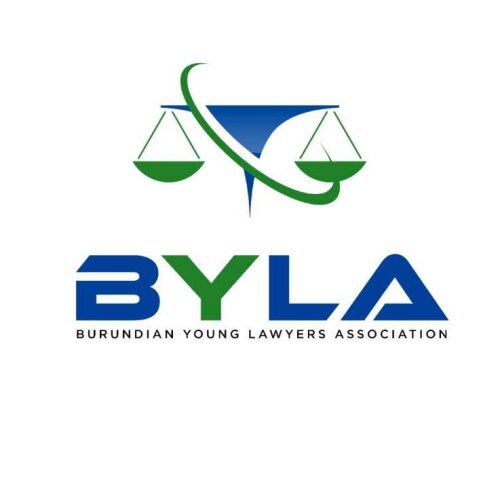Best Tax Increment Financing Lawyers in Burundi
Share your needs with us, get contacted by law firms.
Free. Takes 2 min.
Or refine your search by selecting a city:
List of the best lawyers in Burundi
About Tax Increment Financing Law in Burundi
Tax Increment Financing (TIF) is a financial tool that Burundi is utilizing to encourage redevelopment and economic growth within specific areas by redirecting future tax revenues to investments in community infrastructure. The concept allows the country to fund public projects that can stimulate private investment, thereby increasing property values and generating more tax revenue in the long term. Though relatively new, TIF is gaining traction as a viable method for driving urban renewal and sustainable development within the nation.
Why You May Need a Lawyer
There are several reasons why individuals or businesses might require legal assistance in the field of Tax Increment Financing in Burundi:
- Understanding complex legal documents and agreements related to TIF projects.
- Ensuring compliance with local laws and regulations governing TIF initiatives.
- Assisting in negotiations between developers, municipalities, and investors.
- Resolving disputes or conflicts that may arise during the implementation of TIF projects.
- Navigating the application and approval process for proposed TIF undertakings.
- Advising on the potential financial implications and benefits of TIF agreements.
Local Laws Overview
In Burundi, Tax Increment Financing is governed by a blend of economic development policies and municipal planning laws. Key aspects include:
- The designation of TIF districts where the program can be applied.
- Guidelines on the types of projects eligible for TIF funding, usually focusing on infrastructure, housing, and public amenities.
- Requirements for transparency and public hearings before the approval of TIF projects.
- Provisions for annual reporting and monitoring of TIF plans to ensure compliance and performance evaluation.
- Regulatory frameworks aiming to balance public interests with private investment incentives.
Frequently Asked Questions
What is Tax Increment Financing?
Tax Increment Financing (TIF) is a public financing method used to facilitate infrastructure improvement and urban development projects by capturing future tax benefits of such improvements.
How does TIF work in Burundi?
In Burundi, TIF works by allowing the increase in property tax revenues, resulting from the increase in property values, to finance current and future investments within designated TIF districts.
Who can initiate a TIF project?
Typically, municipalities or local governments initiate TIF projects, often in collaboration with private developers or investors interested in rebuilding or enhancing certain areas.
What kinds of projects can be funded through TIF?
Projects often funded through TIF include road and infrastructure improvements, redevelopment of property, public services enhancement, and construction of community facilities.
What are the benefits of Tax Increment Financing?
The main benefits include stimulating economic growth, revitalizing neglected areas, creating jobs, and leveraging private investment with minimal impact on current taxpayers.
Are there any risks associated with TIF?
Risks include the possibility of underperforming projects that do not generate expected tax increments, legal disputes among stakeholders, and potential for increased public debt.
What is the approval process for a TIF project?
The process involves proposing the project plan, conducting feasibility studies, holding public hearings, obtaining necessary government approvals, and establishing agreements with developers.
How long does a TIF last?
The duration of a TIF can vary but typically ranges from 15 to 30 years, depending on the specifics outlined in the project agreement and local regulations.
Can TIF projects be modified once they are approved?
Amendments to TIF projects may be possible, but they usually require legal review, public consultation, and approval from municipal authorities to ensure adherence to original objectives and compliance with regulations.
How can I track the progress of a TIF project?
Progress is usually monitored through municipal reports, financial disclosures, and periodic assessments by local government bodies overseeing the initiative.
Additional Resources
Individuals and organizations interested in TIF in Burundi may find assistance and valuable information from these resources:
- The Ministry of Finance in Burundi, which handles the economic development policies related to TIF.
- Local municipal planning and development offices for specific guidance on regional TIF initiatives.
- Professional legal firms specializing in economic development and finance law.
- Academic institutions and think tanks conducting research on economic strategies and sustainable urban growth.
Next Steps
If you find yourself in need of legal assistance with Tax Increment Financing in Burundi, consider the following steps:
- Identify and consult with a legal expert who specializes in finance or urban development law.
- Thoroughly review any current or proposed TIF agreements and related documents.
- Engage directly with municipal offices to better understand local regulations and requirements.
- Attend public meetings or forums about TIF to gain insights into community interests and proposals.
- Consider reaching out to professional networks or business associations for recommendations and support.
Lawzana helps you find the best lawyers and law firms in Burundi through a curated and pre-screened list of qualified legal professionals. Our platform offers rankings and detailed profiles of attorneys and law firms, allowing you to compare based on practice areas, including Tax Increment Financing, experience, and client feedback.
Each profile includes a description of the firm's areas of practice, client reviews, team members and partners, year of establishment, spoken languages, office locations, contact information, social media presence, and any published articles or resources. Most firms on our platform speak English and are experienced in both local and international legal matters.
Get a quote from top-rated law firms in Burundi — quickly, securely, and without unnecessary hassle.
Disclaimer:
The information provided on this page is for general informational purposes only and does not constitute legal advice. While we strive to ensure the accuracy and relevance of the content, legal information may change over time, and interpretations of the law can vary. You should always consult with a qualified legal professional for advice specific to your situation.
We disclaim all liability for actions taken or not taken based on the content of this page. If you believe any information is incorrect or outdated, please contact us, and we will review and update it where appropriate.
Browse tax increment financing law firms by city in Burundi
Refine your search by selecting a city.











